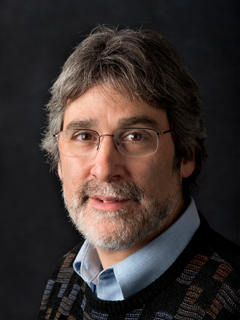HOW CAN WE HELP YOU? Call 1-800-TRY-CHOP
In This Section

Dr. Marks investigates the molecular mechanisms underlying the formation of cell type-specific lysosome-related organelles; the assembly, delivery and function of their contents; and how these processes are impacted by genetic diseases.
Bio
Dr. Marks investigates the molecular mechanisms underlying the formation of cell type-specific subcellular lysosome-related organelles (LROs). His research focuses on the assembly and function of LRO contents, intracellular membrane dynamics involved in the proper delivery of these contents to LROs, and how genetic diseases impact these processes.
The major model system developed by Dr. Marks and collaborators to address these questions is the generation of melanosomes, the pigment cell-specific LROs found in skin melanocytes and eye pigment cells. Membrane trafficking steps required for melanosome biogenesis are disrupted in a group of genetic diseases that are collectively referred to as the Hermansky-Pudlak syndromes (HPS).
Dr. Marks' lab investigates how specific proteins impact melanosome function in cultured melanocytes and how delivery of these proteins to melanosomes is regulated at the molecular and cellular level by genes that are targeted in different HPS variants. Work in collaboration with the Tishkoff lab at Penn addresses mechanisms by which lysosomal function impacts melanogenesis in melanocytes.
Dr. Marks' research extends into other LRO systems affected by HPS. All HPS patients suffer from excessive bleeding due to defects in the biogenesis of dense granules, LROs in platelets that store small molecules for release at sites of vascular damage. In collaboration with the Poncz lab and several others at CHOP and Penn, Dr. Marks' lab is developing reagents to identify protein components of dense granules and to assess how HPS affects their delivery to nascent dense granules.
In addition, the Marks lab identified defects in innate immune responses by dendritic cells — sentinels of the immune system — that appear to be responsible for impaired anti-bacterial responses in these patients. A large cohort of HPS patients ultimately succumb to a lethal lung fibrosis, and Dr. Marks collaborates with the Guttentag lab (Vanderbilt University) to address how HPS proteins regulate the biogenesis of lamellar bodies, LROs in type II lung epithelial cells in which surfactant is synthesized and stored. Lastly, some HPS patients are prone to a type of inflammatory bowel disease, and work in collaboration with the Behrens lab at CHOP suggest that this might reflect hyperactive innate immune responses by patient monocytes.
Education and Training
BS, Cornell University (Biological Sciencesi), 1982
PhD, Duke University (Immunology/Microbiology), 1989
Fellowship, NIH/NICHD (Immunology/Gene Regulartion), 1992
Fellowship, NIH/NICHD (Immunology/Cell Biology), 1995
Titles and Academic Titles
Investigator
Professor of Pathology and Laboratory Medicine
Professor of Physiology
Professional Memberships
American Association of Immunologists, 1996-
American Society for Cell Biology, 1994-
American Association for the Advancement of Science, 1994-
American Society for Biochemistry and Molecular Biology, 2008-
European Society for Pigment Cell Research, 2013-
Chair, NIH Study Section on Membrane Biology and Protein Processing, 2019-2021
Chair, Gordon Research Conference on Lysosomes and Endocytosis, 2012